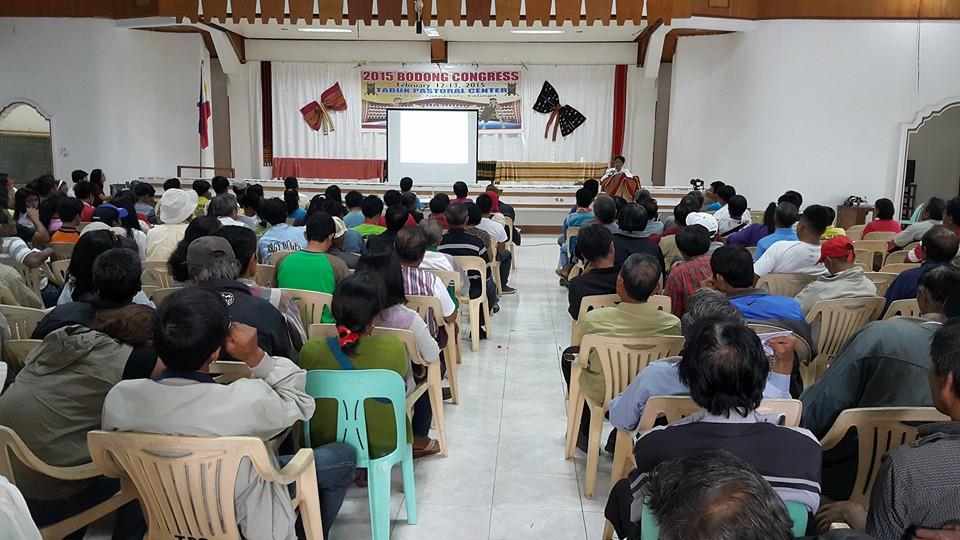After listening to the public employee’s hopes for the Cordillera Region, Twinkle, Kuya Dann and I shared an evening of fellowship with Twinkle’s grandmother’s sister and her family in their Baguio home. That night, we boarded a bus for the City of Tabuk in Kalinga Province.
On the morning of Thursday the 12th we arrived in Tabuk, where we attended the Bodong Congress, held at the Tabuk Pastoral Center. Bodong holders from all the Kalinga tribes filled the auditorium, listening to speech after speech by prominent Kalinga elders. The speakers lauded the Bodong system of tribal laws and peace pacts between tribes. They resolved to preserve and perpetuate the Bodong, while modernizing and adapting it to changing social and cultural realities.
That evening at Tabuk’s Davidson Hotel, we had dinner with Canadians Hart and Ginny Wiens, veteran Bible translators who have worked in Kalinga for decades. The Wiens’ wisdom is especially important for the guidance of the fledgling PAR Kalinga, not only because of the Wiens’ network and their expert knowledge of Kalinga culture, but also because they are our fellow Mennonites. They align with all of PBCI’s Peace And Reconciliation ideals; we speak the same language. Over dinner, Twinkle and the Wienses discussed Kalinga customs, such as the proactive hospitality which prompts Kalinga villagers to approach a stranger within ten minutes of his arrival in their town; to offer him coffee; and to invite him to sleep at their house. Kalingans will sometimes squabble over which of their families gets the honor of hosting a stranger.
During our conversation with the Wienses it was resolved that we would take steps to connect the Wienses’ network (based in the town of Asimbanglan) with Twinkle’s network in Tabuk City. Kuya Dann drew two circles – one representing each network – with the sylus of his smart phone.
But the next morning, Friday the 13th, when I came down to breakfast at the Grand Zion Hotel, Twinkle had Kuya Dann’s smart phone and was drawing a whole matrix of intersecting circles, representing the multiplicity of networks which she hoped to unite with the vision of PAR Kalinga. Then Twinkle sat up straight and she rounded on Kuya Dann. “Ama, I want to campaign for Autonomy.”
Kuya Dann’s face betrayed no change. He told Twinkle that she had his blessing to formally identify PAR Kalinga with this particular political goal, but that this stance would necessarily make her ineligible to participate in PBCI’s future mediations between politically opposed factions. To be effective in those sorts of mediations, PBCI must remain politically neutral. “But,” said Kuya Dann, “This is the desire of your heart. This is your passion.” And so it was resolved that PAR Kalinga will pursue the dream of Cordilleran Autonomy, for Peace, Justice, and the well-being of all Cordillerans.
That evening the Wienses joined us for dinner at the Grand Zion Hotel. We continued to discuss a topic of the night before – what should be the next step in the relationship between the farmers of Asimbanglan and PeaceBuilders Community Inc. /Coffee For Peace (PBCI/CFP)? In 2011 a PBCI/CFP team began to train these farmers in the cultivation of high-value arabica coffee, and we had planned to train them further. But in the intervening years, three devastating typhoons and two major armed conflicts have consumed nearly all of the PBCI/CFP community’s time and resources. The farmers’ training had not been continued, and they felt abandoned by PBCI/CFP. It was resolved that we would meet with them on the following day.
The story of our listening tour continues in Part 4.























